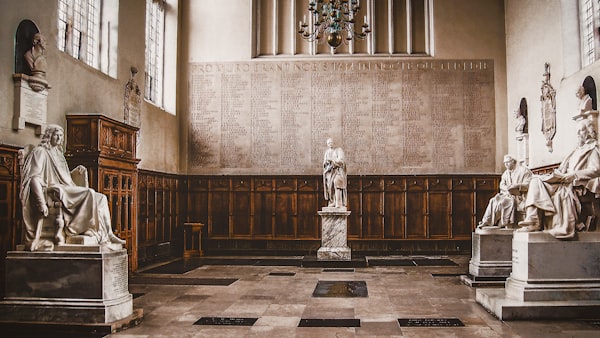Film Discussion 06: Au Hasard Balthazar
It wasn't an easy film to watch or necessarily fully understand, but I feel like we were able to make some great headway this morning and hopefully understand a little better what Bresson was trying to get us to experience in his film, Au Hasard Balthazar. This movie is still working its way through my brain and I think I'll be mulling over it for a few weeks more. Hopefully you were able to get something out of this film as well as I'm starting to agree with many of the reviewers that this is a movie worth watching and a masterpiece of the cinema.
Thanks to Nick and Irene for helping me grasp this film. I've included the show notes below with some of the quotes we talked about, videos we mentioned, as well as some helpful related content for those of you who didn't get a chance to discuss it with us. Hope to see you next time!
Show Notes
1. Videos from the Criterion CollectionThese are some really interesting interviews about this film. For the full interviews, check out the Criterion version of this movie for the full bonus features. Definitely a great place to start!
2. "Au Hasard Balthazar" by James Quandt
A nice summary of the Christian symbolism present in this film:
Passed from cruel master to cruel master, Balthazar traverses the stations of the cross, beaten, whipped, slapped, burned, mocked, and, in the concluding crucifixion, shot and abandoned to bleed to death, the hillside on which he slowly perishes a modern-day Golgotha. That he dies literally burdened (with contraband) suggests, in this reading, a sacrifice for humanity. This meaning is intensified by Balthazar’s sole, stigmata-like wound and by the sheep that flow around him, a tide of white that surrounds his dark, prostrate form. With their tolling bells, they evoke the Agnus Dei and thereby the liturgy, “Qui tollis peccata mundi, miserere nobis.” Balthazar has died for the sins of those who have transgressed against him—the alcoholic Arnold, the vicious Gérard, the mean, miserly merchant—and of the few who have not, particularly the martyred Marie, whose fate parallels his.And another summary of what the seven major scenes could represent:
That Balthazar passes through the hands of seven masters suggests to some a numerical trace of the seven words from the cross, the seven sacraments of the church formed by Christ’s Passion, or the seven deadly sins. The mock baptism performed by the children and the auditory equation of church bells with Balthazar’s bell indicate the animal’s divinity; Marie’s name suggests the mother of God, and the garland of flowers she makes for Balthazar is reminiscent of Christ’s crown of thorns; the strange bestiary in the circus implies the ark; the smugglers’ gold and perfume are the equivalent of the offerings of the magi; Gérard’s band of blousonsnoirs represent Christ’s tormentors (or, as Gilles Jacob has suggested, the thieves of Ecclesiastes); the wine that Arnold drinks and the bread that Gérard delivers both suggest transubstantiation; Arnold is in many ways a Judas figure; and so on.3. Hitchcock's Explanation of Cutting and Juxtaposition
A humorous explanation of the power of film to offer different meanings to the same shot based on the shots before and after it. Key to understanding Bresson's use of the close-ups of Balthazar in response to the events around him.
4. "Au Hasard Balthazar" by Ron Reed
A possible explanation to why the plot seems so sparse in this film:
Bresson's story-telling style was just as sparse: he pruned away explanations of behavior, standard plot set-ups and obvious emotional build-ups to the point where we're frequently unsure of what exactly is going on in a given scene. He once said, "We must let the mystery remain. Life is mysterious, and we should see that on-screen. The effects of things must always be shown before their cause, like in real life. We're unaware of the causes of most of the events we witness. We see the effects and only later discover the cause." In Bresson's world we feel like children (or animals?) viewing the baffling behavior of adults: not understanding the context or background of what's unfolding in front of us, we pay fierce attention to every nuance of every interaction, fine-tuned to emotion and implication and barely-grasped subtext.And finally, the quotation on how Balthazar makes us realize that we are closer to animals than we may think:
Bresson immerses us in life as a donkey experiences it, and instead of identifying with the creature because he's almost human, we identify with him because we're almost animals.




